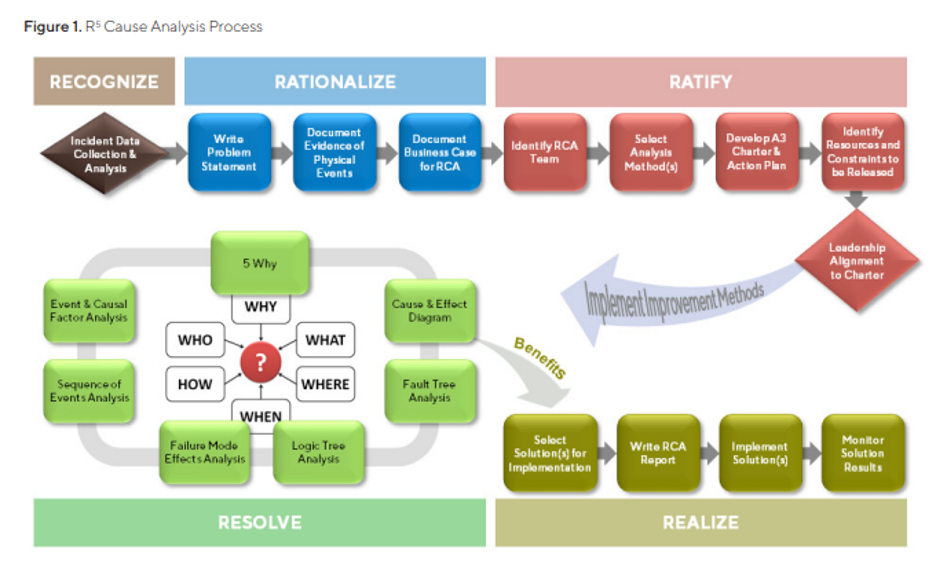What is Root Cause Analysis (RCA) and Why is it Important?
Root Cause Analysis (RCA) is the core skill used by maintenance and reliability engineering professionals to resolve problems that impact an organization’s ability to meet strategic objectives. RCA is not just a tool, it is a systematic methodology used by managers, engineers, supervisors, operators, and technicians to eliminate chronic problems that affect an organization.
Often, root cause analysis is used to conduct bad actor analysis. A bad actor is an asset that can be associated with negative effects such as downtime, maintenance costs, safety, and risk. They are typically associated with frequent unplanned failures and hindered productivity. Proper management of these bad actors includes prioritizing and investigating the root causes of the failures and implementing corrective actions to decrease the chances of them happening again.




